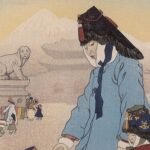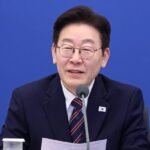Crowd at the departure hall at Incheon International Airport on Sept. 13, 2024, ahead of the Chuseok holiday (Photo by Hyuk Choi)
Demand for overseas travel among South Koreans during the upcoming holiday grew, while the number of inbound tourists from China is expected to shrink, hurting the travel account and domestic demand of Asia’s fourth-largest economy.
The total number of outbound passengers during the Sept. 13-18 Chuseok holiday was estimated at 650,000, according to Incheon International Airport Corp. on Friday.
The number of users of Korea’s main gateway was expected to hit a record high of 200,671 per day, on average, during the festival period, led by increases in sales of international tour packages for families, the airport operator said.
Hanatour Service Inc., the country’s No. 1 travel agency, and its smaller rival Modetour Network Inc. said booking rates for overseas package travel services for the autumn harvest festival rose by 10 percentage points and 35 percentage points, respectively from a year earlier.
NINE-DAY HOLIDAY IN EARLY OCTOBER
Demand for international travel during holidays in early October also jumped. Modetour said bookings for overseas trips from Sept. 28 to Oct. 6 soared by 45 percentage points from the previous week after the government designated Armed Forces Day on Oct. 1 as a temporary holiday.
“Many customers were looking for packages not only for short-haul destinations such as Southeast Asia and Japan but also for long-distance destinations such as Europe, as three days’ leave allows for a nine-day vacation during this period,” said a travel industry source in Seoul said.
South Korea will celebrate National Foundation Day on Oct. 3, which means that workers who take off just three days — Sept. 30, Oct. 2 and Oct. 4 — can enjoy a nine-day-long holiday.
The robust demand is expected to boost sales at the country’s travel agencies.
Hanatour’s sales were forecast to jump 38% to 181.3 billion won ($136.3 million) in the third quarter from the previous three months, according to local financial data provider FnGuide Inc. Modetour’s revenue was predicted to grow 16% to 60.5 billion won during the period.
FEWER CHINESE TOURISTS
The number of incoming travelers, notably from China, is expected to fall, however, due to the slowdown in the world’s second-largest economy.
Only 50% to 70% of seats for flights from Beijing and Shanghai to Incheon were reserved for the Mid-Autumn Festival in China, according to industry sources in Seoul.
“The number of Chinese tourists will be fewer as many of those seats were reserved by Korean passengers,” said a Korean airline official.
Chinese media said consumption in the mainland ahead of major holidays such as the Mid-Autumn Festival and National Day, which falls on Oct. 1-7, was so sluggish that sales of famous holiday foods and drinks such as mooncakes and traditional fiery baijiu liquor fell.
TO HURT TRAVEL DEFICIT, DOMESTIC DEMAND
The combination of rising outbound and falling inbound travel are expected to worsen South Korea’s travel account.
The country reported a travel account deficit of $6.6 billion in the first half, the largest since the same period in 2018, according to the Korea Tourism Organization. The shortfall is likely to increase further as overseas travel by Koreans is forecast to rise further.
“The government has been trying to increase demand for domestic travel through various measures such as discount coupons for accommodations, but it did not work, as the cost of local travel is not so low compared with that for overseas travel,” said another travel industry source.
Shinsegae Simon Premium Outlet in Yeoju, South Korea (File photo by Shinsegae Simon)
Retailers such as department stores and factory outlets have struggled to revive sliding sales amid a shrinking number of customers.
Lotte Shopping Co. and Shinsegae Inc. plan to open their outlet stores throughout the Chuseok holiday this year. Such shops were closed for one day during the festival before.
“We are worried that fewer people will be staying in Korea, though we need to boost sales at all costs during this holiday after the number of customers fell in July and August due to the unusually hot weather,” said an outlet store official.
By Sun A Lee
sunaa@hankyung.com
Jongwoo Cheon edited this article.















